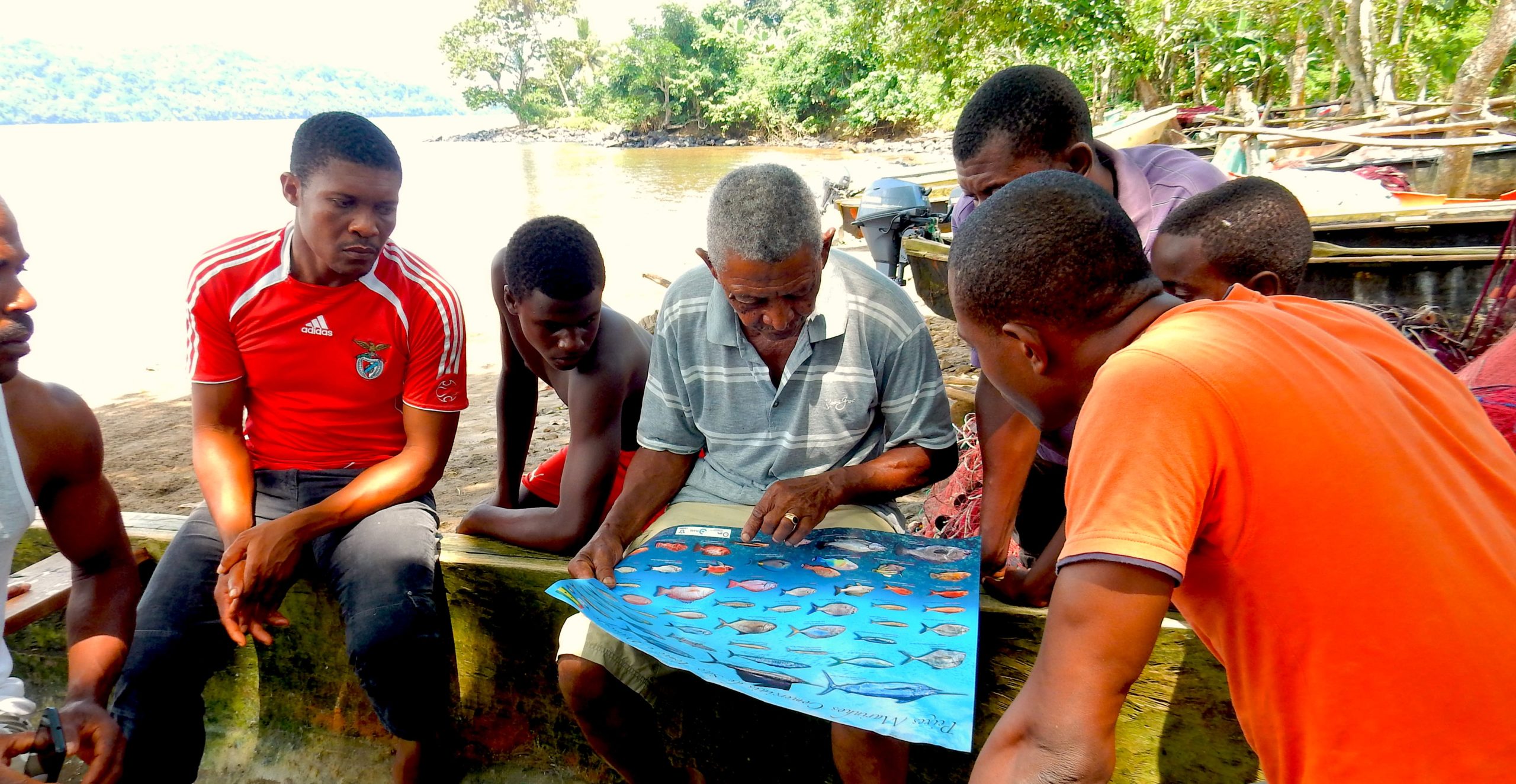Author – Dr Ana Nuno, Research Fellow and Project Coordinator for Omali Vida nón
A remote and poorly known small island located in the Gulf of Guinea, off the coast of Central Africa, Principe (Sao Tome and Principe) and its people rely heavily on small scale fisheries. “I’m a fisherman with great pride! I am not afraid to say it anywhere in the world: I am a fisherman!” says one of the men during our project workshops. In a similar workshop organized for fish traders, an occupation mostly done by women, one of them tells us: “being a fish trader is good because we do not depend on our husbands… we can buy what we want… eat and drink what we want…support our children’s education… it’s very good for us”. It is clear than more than simply providing food (average annual fish consumption in the country is one of the highest in Africa) and income, fishing is intrinsic to these local communities’ lives and the status of marine resources affects all of them.
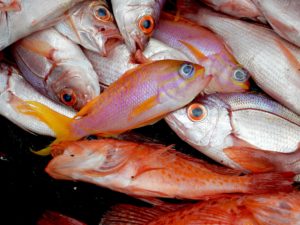
When these same communities report having to travel farther away, spend more time at sea and increase the amount of fishing gear in order to get similar amounts of fish that they used to catch near the coast some years ago, the usual suspects come to mind. Scarce alternative sources of income, lack of resources and capacity for marine conservation and fisheries management plus limited monitoring and enforcement mean that overfishing and habitat degradation are affecting the viability of Principean fishing livelihoods. For example, in 2012, the entire island of Príncipe and its surrounding waters was designated a UNESCO Biosphere Reserve for its global biodiversity significance. However, in reality, there is no enforcement to support this designation (and there is no formal protection provided to any marine areas around the neighbour island of São Tomé).
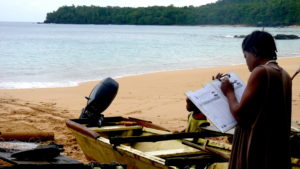
This project aims to improve marine biodiversity and livelihoods of coastal communities in Principe, based on collaborations among researchers (University of Exeter, UK), a local NGO (Principe Trust Foundation), the Regional Fisheries Department and the Biosphere Reserve Management Unit, and with support from Forever Principe (a collaborative conservation alliance that finances conservation through tourism activities) and the Halpin Trust. From July 2016 (when the project started) until now, much has been learnt and, more importantly, fishers and fish traders have remained central to all interventions. Due to limited governmental control, there is a strong need for participatory approaches involving local men and women in any management measures, since they will be the future enforcers of such measures. Fishers and fish traders have thus been actively involved in: identifying project priorities and target areas of intervention; landing surveys data collection (e.g. focal points from different communities record information on fishing gear, effort and catch twice a week); and mapping their own fishing areas (e.g. fishers take GPS trackers when they go out fishing and contribute to identifying important fishing grounds and potential conflicts with other uses, such as industrial fishing).
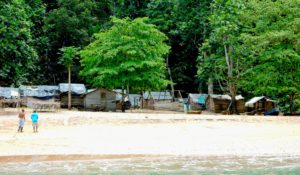
One of the highlights of the project so far has been the discussions and identification of “community ideas” with a positive impact on the sustainability of artisanal fisheries. Several months of project meetings and discussions at each of the six fishing communities allowed us to identify the best locally-suitable ideas to improve management of marine resources and benefit fishers and fish traders. These ideas, identified and proposed by each of the communities following specific criteria and judged by all project partners, include, for example, developing a crafts center, building a community headquarter or providing better fish storage equipment. With its implementation just beginning, we look forward to learn from each investment made possible thanks to Darwin Initiative funds and use them as catalysers for community dynamism and capacity building.
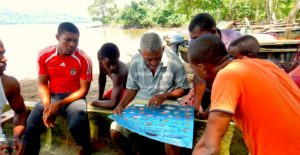
Our emphasis on participatory approaches and local capacity building is starting to pay off. Project efforts are increasingly recognized by the wider community and discussions about potential future measures (e.g. co-managed areas) and project expansion to neighbour island are on the table. With much progress still to be made, it’s very encouraging to see that this project, only possible thanks to funds from Darwin Initiative, Forever Principe and the Halpin Trust, is creating momentum for sustainable small-scale fisheries and marine conservation on this small island nation.
#ExeterMarine is a interdisciplinary group of marine related researchers with capabilities across the scientific, medical, engineering, humanities and social science fields. If you are interested in working with our researchers or students, contact Michael Hanley or visit our website!

